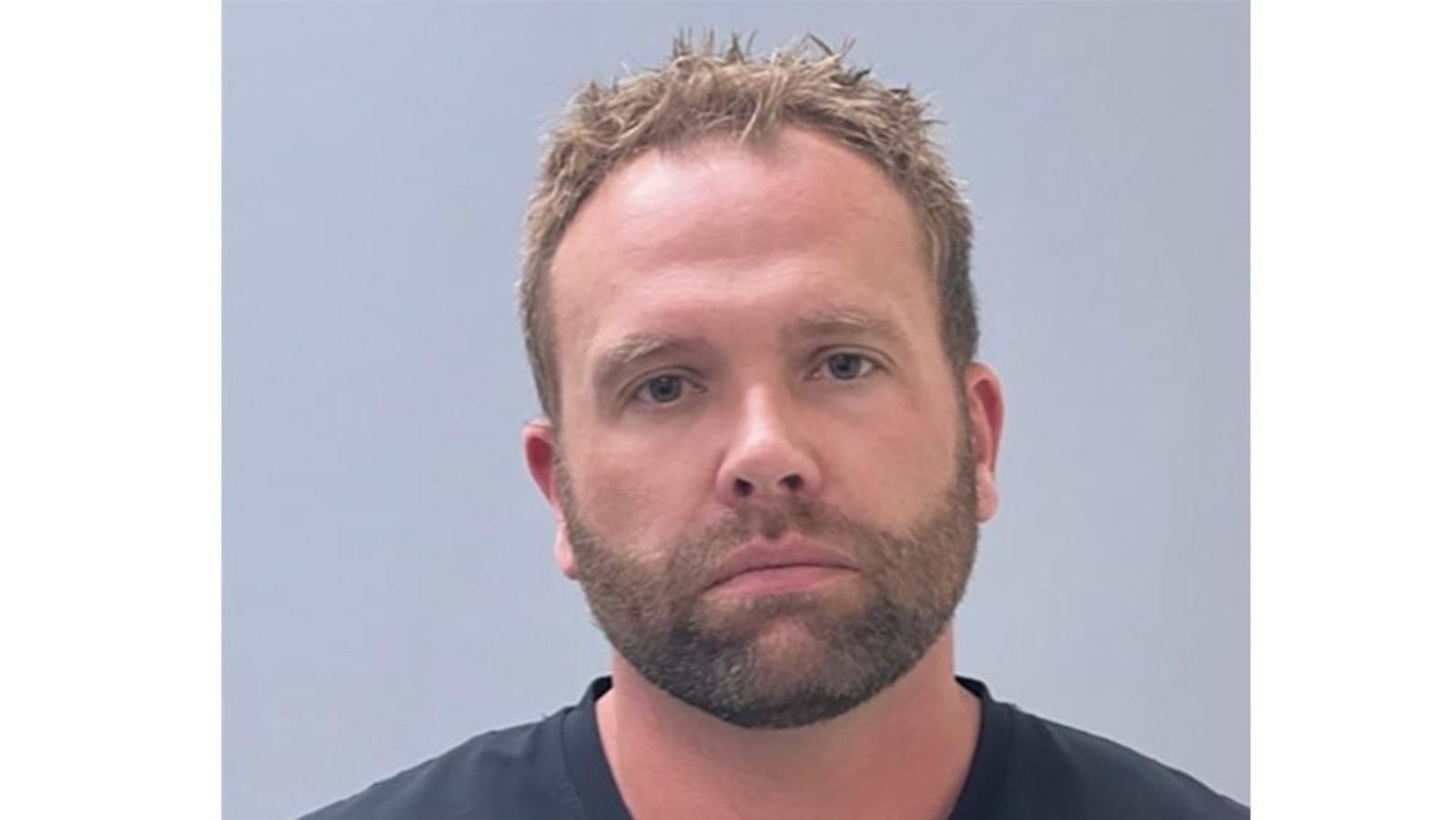
PENSACOLA, Fla. — A plastic surgeon in the Florida Panhandle was charged with his wife’s death after she suffered a cardiac arrest and died days after he performed after-hours procedures on her in his clinic last year, authorities said.
Benjamin Brown was arrested Monday on a charge of manslaughter by culpable negligence, which is a second-degree felony, He was released from the Santa Rosa County Jail after posting a $50,000 bond.
There was no online court docket for Brown as of Tuesday morning so it was unknown if he had an attorney. No one answered the phone at his clinic.
Brown’s wife, Hillary Brown, went into cardiac arrest in November while her husband was performing procedures on her at his clinic in Pensacola, according to the Santa Rosa County Sheriff’s Office. She was taken to a hospital and died a week later, the sheriff’s office said.
Last month, the Florida Department of Health filed an administrative complaint before the state Board of Medicine, seeking penalties against Brown up to the revocation or suspension of his license. The complaint involved his wife’s case and other cases.
Unsupervised by her husband or any other health care practitioner, Hillary Brown prepared her own local anesthesia and filled intravenous bags for the procedures which included arm liposuction, lip injections and an ear adjustment, according to the Department of Health complaint.
She also ingested several pills, including a sedative, pain killer and antibiotic, before falling into a sedated state, though the consumption of those pills wasn’t documented, the complaint said.
“The minimum prevailing professional standard of care requires that physicians not permit a patient to prepare medication for use in their own surgery,” the complaint said.
During the procedures, Hillary Brown’s feet began twitching and she told her husband that her vision was starting to blur and that she saw “orange.” Benjamin Brown injected more lidocaine, an anesthetic, into her face. The Department of Health said she became unresponsive and had a seizure.
A medical assistant asked Benjamin Brown if they should call 911, and he said “no,” according to the complaint. Over the next 10 or 20 minutes, the medical assistant repeated her question about whether they should call for paramedics, and he said, “no” or “wait,” the complaint said.
When Hillary Brown’s breathing became shallow and her pulse and blood oxygen levels became low, after about 10 to 20 minutes, Benjamin Brown told his assistants to call 911 and he began performing resuscitation efforts on her, the complaint said.
Also last month, the Department of Health issued an emergency order restricting Benjamin Brown’s license to performing procedures only at a hospital under the supervision of another physician. His wife had given injections and performed laser treatment on patients even though she wasn’t a licensed health care practitioner, the order said.
Addressing the procedures involving his wife last November, the order noted that muscle twitches and blurred vision are early signs of lidocaine toxicity. The order described Benjamin Brown’s treatment of his wife as “careless and haphazard.”
“The level of disregard that Dr. Brown paid to patient safety, even when the patient was his wife, indicates that Dr. Brown is unwilling or incapable of providing the appropriate level of care his future patients,” the order said.
A prominent plastic surgeon is facing charges in connection with his wife’s death from cardiac arrest, sending shockwaves through the medical community and raising questions about the ethics and responsibilities of healthcare professionals.
Dr. John Smith, a well-known plastic surgeon with a successful practice, was arrested last week after his wife, Sarah Smith, passed away from cardiac arrest at their home. The circumstances surrounding her death have raised suspicions and led investigators to believe that foul play may have been involved.
According to reports, Sarah Smith had been in good health prior to her sudden cardiac arrest. However, witnesses have come forward claiming that they heard arguments coming from the Smiths’ home on the night of her death. Additionally, there are allegations that Dr. Smith had been involved in extramarital affairs and financial troubles, which may have put strain on their relationship.
The charges against Dr. Smith include suspicion of domestic violence and potential negligence in his wife’s medical care. Investigators are currently looking into whether Dr. Smith may have failed to provide proper medical attention to his wife during her cardiac arrest, which could have potentially saved her life.
This case has sparked a debate within the medical community about the responsibilities and ethical obligations of healthcare professionals, especially when it comes to treating their own family members. Many argue that doctors should be held to a higher standard when it comes to providing medical care to their loved ones, as they have the knowledge and expertise to potentially save lives.
On the other hand, some believe that doctors should not be held accountable for the actions of their family members, as they are also human beings who may make mistakes or face personal challenges that can impact their ability to provide care.
Regardless of the outcome of this case, it serves as a reminder of the complexities and challenges that healthcare professionals face in their personal and professional lives. It also highlights the importance of transparency, accountability, and ethical behavior in the medical field, as patients trust doctors to provide them with the best possible care.
As the investigation into Dr. Smith’s charges continues, the medical community will be closely watching to see how this case unfolds and what implications it may have for the practice of medicine moving forward.


